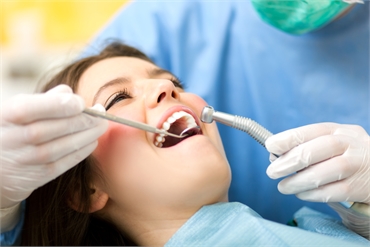What is Dental Care

Dental care refers to the practice of maintaining good oral hygiene and preventing dental diseases. It involves regular dental check-ups, proper brushing and flossing, and a healthy diet. The importance of dental care cannot be overstated, as poor oral health can lead to a range of serious health problems.
Dental care refers to the practice of maintaining good oral hygiene and preventing dental diseases. It involves regular dental check-ups, proper brushing and flossing, and a healthy diet. The importance of dental care cannot be overstated, as poor oral health can lead to a range of serious health problems.
This article will cover the basics of dental care, including why it is important, how to maintain good oral hygiene, common dental problems, and how to prevent them.
Importance of Dental Care:
Good dental care is essential for maintaining overall health and wellbeing. Poor oral health can lead to a range of problems, including tooth decay, gum disease, and bad breath. In addition, poor oral health has been linked to a range of serious health problems, including heart disease, stroke, and diabetes.
Regular dental check-ups are an essential part of dental care. During these check-ups, a dentist can identify any dental problems early on, before they become more serious. This can save you from the pain, discomfort, and expense of more advanced dental problems.
In addition, regular dental check-ups can help to identify other health problems, such as oral cancer. Oral cancer can be difficult to detect in its early stages, but a dentist can often spot the signs of oral cancer during a routine dental check-up.
Maintaining Good Oral Hygiene:
Maintaining good oral hygiene is essential for preventing dental problems. The most important aspects of good oral hygiene include proper brushing and flossing, a healthy diet, and regular dental check-ups.
Brushing: Brushing your teeth twice a day is the most important aspect of good oral hygiene. Use a toothbrush with soft bristles and fluoride toothpaste. Hold the brush at a 45-degree angle to your teeth, and brush in circular motions for at least two minutes. Be sure to brush all surfaces of your teeth, including the fronts, backs, and tops.
Flossing: Flossing is an essential part of good oral hygiene, as it helps to remove food particles and plaque from between your teeth. Use a length of floss about 18 inches long, and wind it around your middle fingers. Use your thumbs and forefingers to guide the floss between your teeth, and gently move it up and down. Be sure to floss between all of your teeth, including the back teeth.
Diet: A healthy diet is essential for good oral health. Avoid sugary and acidic foods, which can contribute to tooth decay and erosion. Instead, eat a balanced diet that includes plenty of fruits, vegetables, whole grains, and lean protein. Drinking plenty of water is also important for good oral health, as it helps to flush food particles and bacteria from your mouth.
Dental Check-ups: Regular dental check-ups are an essential part of good oral hygiene. Your dentist can identify any dental problems early on, before they become more serious. During a dental check-up, your dentist will examine your teeth and gums, and may take X-rays to check for any hidden problems. They will also clean your teeth, removing any plaque or tartar that has built up.

